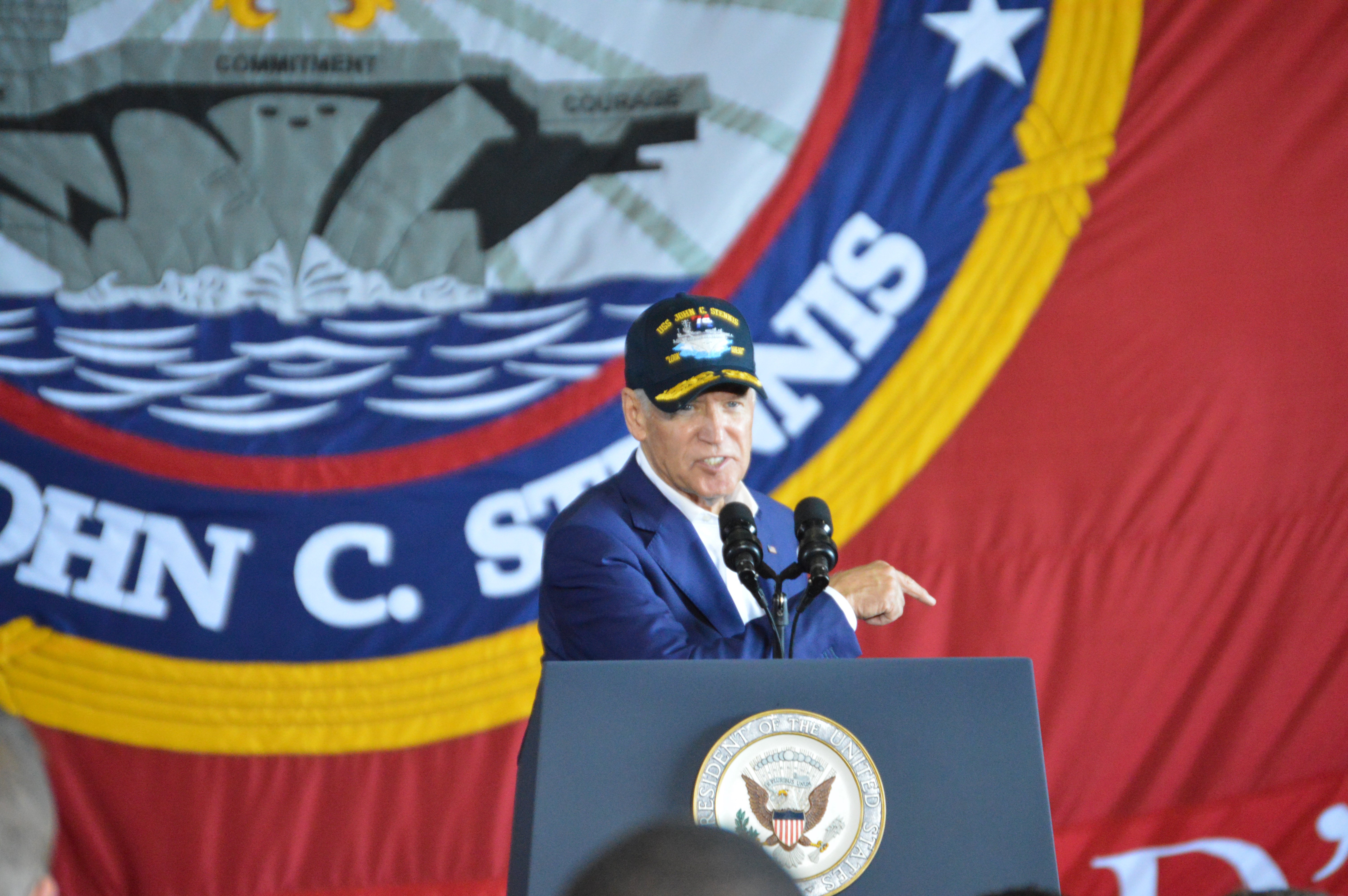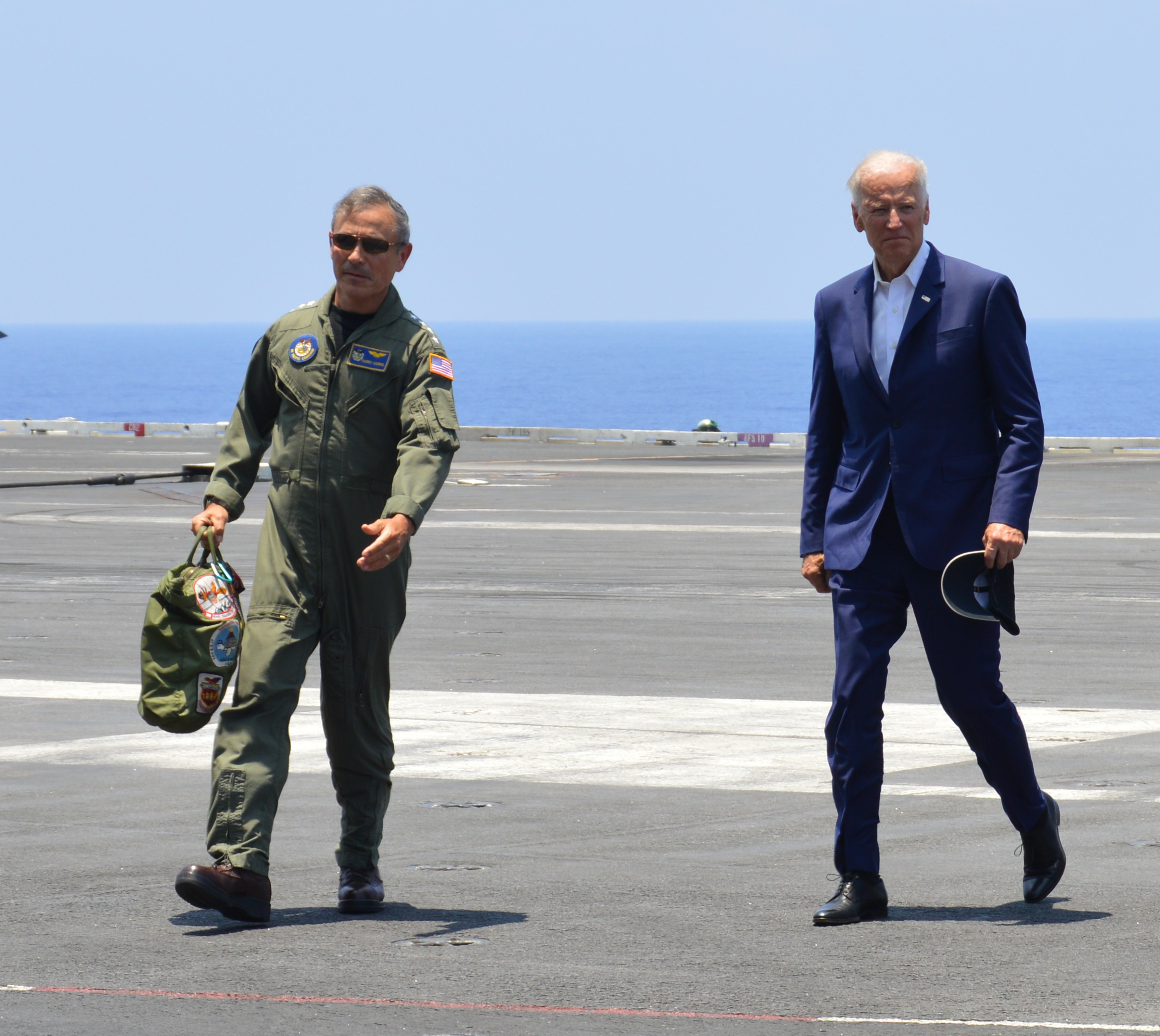
ABOARD AIRCRAFT CARRIER USS JOHN C. STENNIS – Vice President Joe Biden thanked sailors aboard aircraft carrier USS John C. Stennis (CVN-74) for affirming U.S. presence and partnership with Asian allies during its seven-month Pacific deployment and denouncing Chinese territorial expansion.
In an all-hands call in the ship’s hangar bay, the vice president thanked thousands of sailors “for being the most visible presence of American leadership in the Pacific and quite frankly around the world.”
“For the past seven months, this strike group, all of you, have been a concrete reminder of America’s commitment to our allies and everything that we bring to the table,” he said, donning a Stennis ballcap with the ship’s logo fluttering behind him.
“You’ve worked in concert with our allies – Korea, Japan, the Philippines. You’ve run exercises with our close partners – India. You’ve helped build relationships with Singapore and Malaysia. And some of you pilots had very effective warnings as you sort of [flew] through unofficially but nonetheless declared Chinese air defense space, and you said, like hell, this is open space. This is all of our airspace. That’s who we are, that’s what America does.
“And in that respect you’ve demonstrated that the United States is committed to a future where everyone does better in this region,” Biden said, repeatedly emphasizing that adhering to rule of law in the Asia-Pacific region promotes growth and prosperity for all.
Biden struck a similar tone earlier in the day, addressing a trilateral delegation at the Daniel K. Inouye Asia-Pacific Center for Security Studies. He told military and state department officials from the U.S., Japan and Republic of Korea that standing against North Korean aggression and Chinese dismissal of international rules and norms put the whole region at risk.

“There are certain international rules of the road that cannot be allowed to go by the wayside,” he said.
“In the wake of this week’s arbitral tribunal ruling in the South China Sea, it’s essential, in our view, that we continue to express our mutual support for the rule of law and for all parties to uphold their commitments under the ruling.”
Biden told his Japanese and Korean partners that the U.S. had enjoyed a strong partnership with the two nations for decades but that in recent years those relationships had strengthened and blossomed into a powerful trilateral relationship.
“It really matters that we have the same strategic view, and tactically are on the same page on very important issues, because it matters, it matters for us, for all three of our nations, but it also matters for the region. Our presence in the region, our mutual cooperation I think is vital to sustaining growth, stability and economic prosperity,” the vice president said.
“Our trilateral relationship is much more than the sum of the individual parts. The three of us add up to more than three nations in the region. By that I mean, when the three of us stand united to uphold the international order, or speak with one voice for universal human rights and dignities, or address threats together – from climate change to the spread of infectious disease – we amplify, we amplify our impact. There’s power in unity. It shows all the other nations in the region that they don’t stand alone.”





